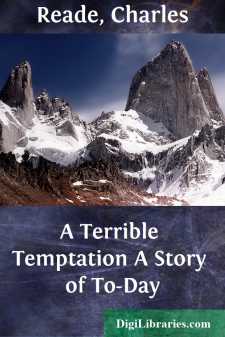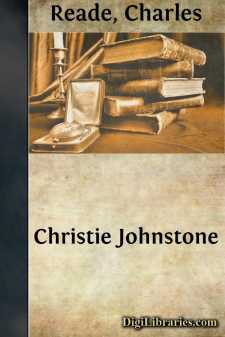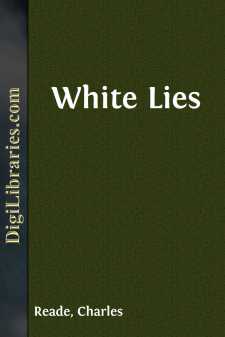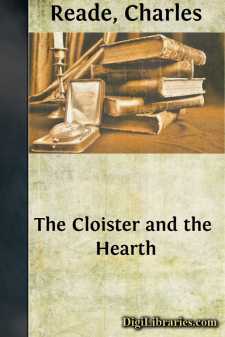Categories
- Antiques & Collectibles 13
- Architecture 36
- Art 48
- Bibles 22
- Biography & Autobiography 813
- Body, Mind & Spirit 142
- Business & Economics 28
- Children's Books 16
- Children's Fiction 13
- Computers 4
- Cooking 94
- Crafts & Hobbies 4
- Drama 346
- Education 46
- Family & Relationships 57
- Fiction 11829
- Games 19
- Gardening 17
- Health & Fitness 34
- History 1377
- House & Home 1
- Humor 147
- Juvenile Fiction 1873
- Juvenile Nonfiction 202
- Language Arts & Disciplines 88
- Law 16
- Literary Collections 686
- Literary Criticism 179
- Mathematics 13
- Medical 41
- Music 40
- Nature 179
- Non-Classifiable 1768
- Performing Arts 7
- Periodicals 1453
- Philosophy 64
- Photography 2
- Poetry 896
- Political Science 203
- Psychology 42
- Reference 154
- Religion 513
- Science 126
- Self-Help 84
- Social Science 81
- Sports & Recreation 34
- Study Aids 3
- Technology & Engineering 59
- Transportation 23
- Travel 463
- True Crime 29
Charles Reade
Charles Reade (1814–1884) was an English novelist and dramatist, best known for his novel "The Cloister and the Hearth" (1861), which is considered one of the great historical novels in English literature. His works often focused on social issues, combining a deep moral perspective with strong character development and intricate plots. Reade was also noted for his advocacy for prison reform and his critiques of societal injustices, reflected in both his fiction and non-fiction writings.
Author's Books:
Sort by:
by:
Charles Reade
CHAPTER I. THE morning-room of a large house in Portman Square, London. A gentleman in the prime of life stood with his elbow on the broad mantel-piece, and made himself agreeable to a young lady, seated a little way off, playing at work. To the ear he was only conversing, but his eyes dwelt on her with loving admiration all the time. Her posture was favorable to this furtive inspection, for she leaned...
more...
by:
Charles Reade
CHAPTER I. THE POOR MAN'S CHILD. Two worn travellers, a young man and a fair girl about four years old, sat on the towing-path by the side of the Trent. The young man had his coat off, by which you might infer it was very hot; but no, it was a keen October day, and an east wind sweeping down the river. The coat was wrapped tightly round the little girl, so that only her fair face with blue eyes...
more...
by:
Charles Reade
CHAPTER I. ABOUT the middle of the last century, at eight o'clock in the evening, in a large but poor apartment, a man was slumbering on a rough couch. His rusty and worn suit of black was of a piece with his uncarpeted room, the deal table of home manufacture, and its slim unsnuffed candle. The man was Triplet, scene painter, actor and writer of sanguinary plays, in which what ought to be, viz.,...
more...
by:
Charles Reade
CHAPTER I. A young lady sat pricking a framed canvas in the drawing-room of Kent Villa, a mile from Gravesend; she was making, at a cost of time and tinted wool, a chair cover, admirably unfit to be sat upon—except by some severe artist, bent on obliterating discordant colors. To do her justice, her mind was not in her work; for she rustled softly with restlessness as she sat, and she rose three...
more...
by:
Charles Reade
CHAPTER I. Hillsborough and its outlying suburbs make bricks by the million, spin and weave both wool and cotton, forge in steel from the finest needle up to a ship's armor, and so add considerably to the kingdom's wealth. But industry so vast, working by steam on a limited space, has been fatal to beauty: Hillsborough, though built on one of the loveliest sites in England, is perhaps the...
more...
by:
Charles Reade
CHAPTER I. VISCOUNT IPSDEN, aged twenty-five, income eighteen thousand pounds per year, constitution equine, was unhappy! This might surprise some people; but there are certain blessings, the non-possession of which makes more people discontented than their possession renders happy. Foremost among these are "Wealth and Rank." Were I to add "Beauty" to the list, such men and women as go...
more...
by:
Charles Reade
CHAPTER I. Towards the close of the last century the Baron de Beaurepaire lived in the chateau of that name in Brittany. His family was of prodigious antiquity; seven successive barons had already flourished on this spot when a younger son of the house accompanied his neighbor the Duke of Normandy in his descent on England, and was rewarded by a grant of English land, on which he dug a mote and built a...
more...
by:
Charles Reade
CHAPTER I Not a day passes over the earth, but men and women of no note do great deeds, speak great words, and suffer noble sorrows. Of these obscure heroes, philosophers, and martyrs, the greater part will never be known till that hour, when many that are great shall be small, and the small great; but of others the world's knowledge may be said to sleep: their lives and characters lie hidden from...
more...









